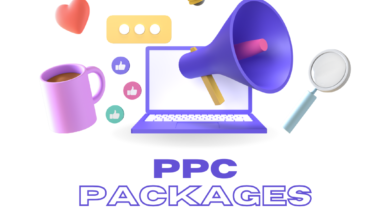Keyword Optimization Tips for Higher Rankings and More Traffic

When it comes to SEO, keyword optimization is one of the most important aspects of the process. If you want to rank higher in Google search results and bring in more traffic, you need to make sure your website is targeting the right keywords. In this blog post, we will discuss some tips that SEO company Malaysia uses for optimizing your keywords and getting the most out of your SEO efforts.
What is Keyword Optimization?
Keyword optimization is the process of choosing and using keywords in a way that will help improve the visibility of a website or piece of content in search engine results pages (SERPs). In general, the goal of keyword optimization is to choose and use keywords that will result in higher rankings in SERPs for the particular website or piece of content. There are a number of different factors that can influence the ranking of a website or piece of content in SERPs, and keyword optimization is one way to try to improve those rankings. The process of keyword optimization generally includes research into which keywords are most likely to be used by people who are searching for the kind of content that the website or piece of content offers.
Once the most relevant keywords have been identified, they can be used in various ways throughout the website or piece of content, such as in the title, in the body, and in the tags. In addition, keywords can be included in paid advertising campaigns, such as Google AdWords, in order to further improve visibility. Keyword optimization is just one aspect of search engine optimization (SEO), but it is an important one. When done correctly, keyword optimization can help to improve SERP rankings and drive more traffic to a website or piece of content
The Tips of Keyword Optimization
There are a few key things to keep in mind when it comes to keyword optimization.
Audit Current On-Page SEO
Optimizing your website for the right keywords is essential if you want to rank high in search engine results pages. However, simply including the target keywords on your website is not enough. You also need to make sure that your website is properly optimized for on-page SEO. This means ensuring that your title tags, meta descriptions, and header tags are all well-crafted and include the target keywords. In addition, your website’s content should be high-quality and relevant to the keywords you’re targeting. By auditing your current on-page SEO, you can identify any areas that need improvement and make the necessary changes. As a result, you’ll be well on your way to optimizing your website for better keyword ranking.
Find Keywords for Your Site
One important tip for keyword optimization is to find keywords for your site that are relevant to your content and audience. There are a number of ways to do this, but one effective method is to use a keyword research tool. There are a number of free and paid options available, but they all essentially work by allows you to enter a seed keyword and then generate a list of related keywords.
Once you have a list of relevant keywords, you can then start to optimize your site for those keywords. This includes both on-page optimization, such as using the keywords in your titles and headings, as well as off-page optimization, such as building links with the keywords in the anchor text. By optimizing your site for the right keywords, you can help to ensure that your site is visible in the search engines for the terms that your audience is searching for.
Map Your Keywords
In addition to researching and selecting the right keywords, it’s also important to map out where those keywords should be used on your website. This is known as keyword mapping, and it’s a critical part of any SEO strategy. There are a few different ways to map keywords, but the most common approach is to match keywords to specific pages on your site. For example, if you sell shoes, you might map the keyword “men’s dress shoes” to your product page for men’s dress shoes. This ensures that your website is optimized for both search engines and human users. Thus, this is making it more likely that you’ll rank for your target keywords and convert visitors into customers. By taking the time to map your keywords, you can make sure that your website is optimize for success.
Avoid Keyword Stuffing
One of the most important tips for keyword optimization is to avoid keyword stuffing. This is when a website includes too many keywords on a page, in an attempt to rank higher in search engine results. However, this practice can actually have the opposite effect, as it makes the site look spammy and unprofessional. In addition, search engines are getting better at detecting keyword stuffing, and may penalize sites that engage in this practice. The best way to optimize keywords is to use them naturally and sparingly throughout the content. For example, you have to make sure that they flow smoothly with the rest of the text. By following this tip, you can help ensure that your site will be properly indexed by search engines and that visitors will find your content relevant and engaging.
Don’t Forget Your Target Audience
Last but not least, don’t forget your target audience when optimizing your keywords. It is important to remember who you are writing for and what they are interested in. Make sure to include keywords that are relevant to your topic and that will appeal to your target audience. If you are writing for a general audience, focus on common keywords that are widely used by everyone. However, if you have a specific target audience in mind, use keywords that are more likely to be used by them. By keeping your target audience in mind, you can ensure that your keywords are more effective and that your content is more engaging.
Final Thought
Keyword optimization is an important part of any SEO strategy. By following the tips above, you can help to ensure that your website is properly optimized for both search engines and human users. By optimizing your page, you can help to improve your website’s ranking in search engine results and increase its traffic. With these tips, you can optimize your website for success.
This article is posted on Blog Scrolls.



